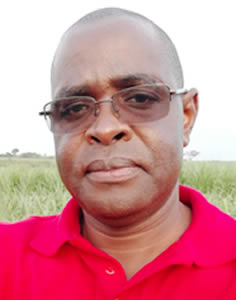
Dr. Herbert Talwana
Associate Professor – Crop Protection spanning the fields of Nematology, Entomology and Plant Pathology, Department of Agricultural Production, School of Agricultural Sciences, CAES Makerere University.
Dr. Talwaha has also contributed to other courses in the Department of Agricultural Production, such as Scholarly writing and Biosafety of Agricultural Biotechnology. As a Plant Nematologist at a national/public university, he has the mandate to conduct research and extension activities on all crops grown in Uganda. My research interest is broadly in the area of crop protection, spanning the fields of Nematology, Entomology, and Plant Pathology, comprising systematics, ecology, biodiversity and evolution, and the development of control strategies. My emphasis is a multidisciplinary approach maintaining an active collaboration in the areas of entomology, plant pathology, and soil/plant nutrition – pest/pathogen interactions. His current research interests are:
-
- Biodiversity of nematodes and their role in ecosystem function, and nematode diagnostics. He is actively involved in nematode surveys and inventories in different crops in Uganda. This will allow him to make significant contributions toward biological conservation and restoration efforts.
-
- Insect pathology and the use of entomopathogenic nematodes as biological control agents. The overall objective of this research interest is to develop entomopathogens as effective biocontrol agents against major agricultural pests and to develop a basic understanding of the ecology and behavior of insect parasitic nematodes.
-
- Development of sustainable insect management strategies. He is actively involved in research on banana nematode management using organic amendments such as chicken and green manure; development of biological control of nematodes in vegetables using Pasteuria penetrans and Pochonia chlamydosporia; screening for resistance to pests in sweet potato and dry beans; and evaluating the possibility of using RNAi technology in engineering resistance to nematodes in bananas
-
- Nematode – soil nutrient interactions
His other professional interests include Research and Development of Integrated Pest Management (IPM) concepts, including competency development and training; Monitoring, Evaluation, and Impact Assessment of Research and Development Investments in Agriculture, and Change Management and Personal Mastery – as a soft skills tool to enhance teaching, research and consultancy. He strives to improve his competence in these areas. He is also a Process Facilitation consultant in learning, strategy development, team building and large group meetings. Download CV below.
